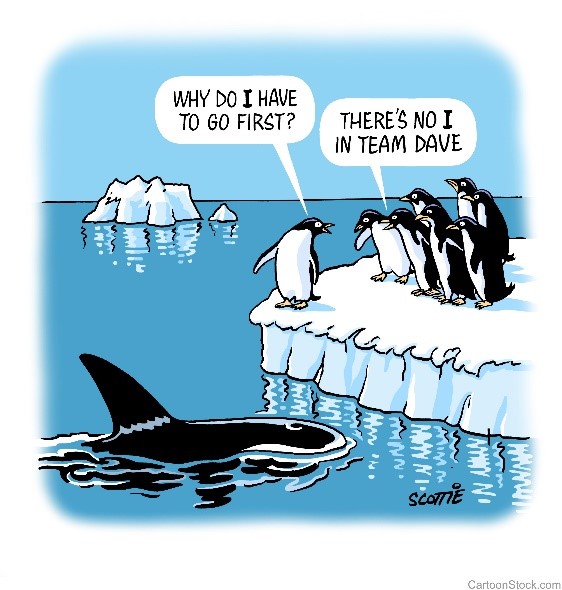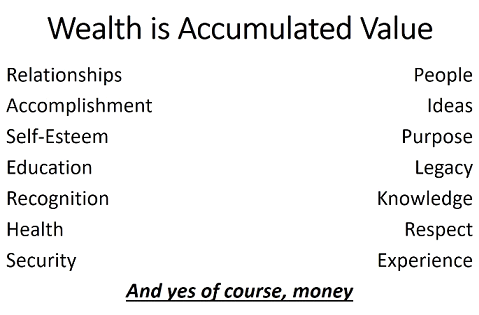SPIF Tip #48: Respect for Salespeople
 In any organization,
In any organization,
improving begins with open, frank discussions around crucial questions, like these:
- Why do we have to change?
- Why should we do this all alone?
- Why should we do this in addition to other work?
- What if sales problems are not caused by us?
- Why is this important to the organization?
- What are objective measures of performance?
- What could the future be like with this approach?
Obviously, such conversations may not be easy. And although change can be perceived as threatening, it also presents possibilities. Do your salespeople know the possibilities?
Rather than jumping in with kaizen events or whatever, it pays big dividends to learn how sales and marketing people are thinking. They typically do not see the company (or the customers) the way other employees do, and with good reason.
A process excellence initiative is an opportunity to reframe everyone’s perspectives in the context of evidence and data. This creates opportunities to improve the productivity and quality of work life.
Recognizing the Wealth Businesses Generate
Businesses create wealth for owners, employees, and customers alike. Unfortunately, if you don’t recognize what wealth is in the first place, there is a lot that can – and does – go wrong!
Some people think wealth comes from money. To them, a high income, inheritance, or possessions seem like the source of wealth. However, this places the cart before the horse. That’s because money is merely a means to something else. It is a consequence of wealth, not its cause. It has the power to create or destroy, depending on the person who wields it. Just check out the six-o-clock news for examples of what happens to people when money is used without purpose, respect, rationality, education, or experience.
Money is only a tool. It will take you wherever you wish,
but it will not replace you as the driver.
Ayn Rand
So, if money does not cause wealth, what does?
Wealth is the accumulation of value. Take a moment, and think of all the value – the results and effects a business creates!
People working together form relationships. They can achieve a wide variety of ambitions. The discipline required generates respect for themselves, as well as respect from others. It provides security, and opportunities to learn and gain experience. It can provide a meaningful purpose in life.
And yes, of course, work provides money, and all those things require money. But wealth is the accumulation of those values. The ability to create value causes money, not the other way around.
Now ask yourself, “Where does your ability to create value come from?”
It should be clear that neither values, nor wealth come from possessions, the school you went to, the job you currently hold, TV appearances, or anything else that is outside yourself.
Instead, the ability to create value and wealth comes from how you are built on the inside. It is how you face to your situation, whatever it is. Your ability to create wealth comes from your assumptions, from how you choose to think. You have within yourself the means of making your life better, no matter how good or bad your situation is at any given moment.
The company you work for is a platform, a canvas on which values can be accumulated. However, each person in the business must create the values – and the wealth – they want for themselves. At every moment, they choose whether to focus on something, consume a resource, or pursue a goal – or not.
Individual employees rarely have a complete picture of the context. For them to create the maximum amount of wealth requires a rigorous process of thought. And that is the point of process excellence initiatives .
Process excellence, properly implemented, teaches people how to think. Its purpose is to make it easier for the business to create wealth – for the customer, for the employees, and for the business owners.
Yes, that includes money. Tons of it, in fact. But the money is only a byproduct of people working together to make the world more like it could be and ought to be. (This is the reason process excellence ought to be the highest priority of every senior executive.)
Wealth Creating Roles and Assumptions of Salespeople and Managers
If you are a salesperson, let’s examine some assumptions you might have about the role you play:
- Salesperson’s Attitude:
Are you out to PROVE how good you are, or IMPROVE how good you are? - Salesperson’s Value:
Are you a passive servant, dependent on the customer, or are you a proactive independent equal? - Salesperson’s Method:
Do you spend most of your time talking, pushing, closing, or listening, inquiring, and facilitating? - Salesperson’s Thinking:
Is it more important for the customer to know about you and your offers, or for you to know about them and their objectives, strategies, and issues?
Most importantly, what actions should you (as a salesperson) be taking to live up to what you think?
Sales managers have huge influence over their teams when they “walk the walk” instead of just “talking the talk”. Let’s examine some of the assumptions managers might have about the role they play:
- Manager’s role:
Are you a boss? Or are you a coach? - Manager’s attitude:
Along for the ride? Or are you an investor? - Manager’s approach to problems:
Avoid them, and hide? Or treasure them, and learn from them?
- Manager’s relationship to authority:
Unquestioning? Or honesty, catchball?
Most people want things to be better, simpler, easier, faster. Process excellence taps into these natural instincts, if managers foster the principle of “Respect for People.” Managers can do this by:
- Always being interested in what their people think
- Always asking them why
- Challenging salespeople to define their terms more clearly
- Encouraging them to find a way to do better
- Making sure they show you what they learn
Saving Salespeople’s Time
A medical device company struggled with a low close ratio – lots of selling time wasted. They learned to define their qualification criteria in a more precise way that used numbers. This enabled them to gather data on current and past deals. Statistical analysis revealed startling ways to improve:
- Numeric ranking prioritized sales opportunities better than the old gut-feel approach.
- Forecast accuracy exceeded 90%. They knew which accounts to prioritize, and which to walk away from.
- Sales attention focused on the small number of criteria the data showed had the highest decision-making impact. It was insight they did not have before.
- Productivity increased. Salespeople had more productive time to spend, and they knew how to spend it.
Making Sales Easer
A national accounts team struggled to bring in big new accounts. Developing a sales value stream map forced them to acknowledge something uncomfortable: When the biggest customers insisted on buying direct, their company did not realize the magnitude of service issues the distributors handled.
To face this reality, the team created a hand-off process and hired an inside salesperson for national accounts. Within six months half the account manager’s time was freed up to work on what they really wanted to do – bring in big new accounts.
Conclusion
Changes like these cannot be accomplished based on opinion or edict. It requires people to reframe their perspective based on evidence and data. Critical thinking skills lead to careful experiments. Learning from experiments leads to a more satisfying and productive work environment.
This can only happen because of the principle of “Respect for People”. This principle recognizes that the only thing we have direct control of is what happens between our own ears. As leaders and managers who wish to influence others, it is between our own ears that we must begin.
No longer can sales managers be the ultimate closers. Instead, they must focus on developing their people. And to do that, they must walk the walk of learning what their people think as well as why they think that way. They lean how their people think the work could be done, and ought to be done.
That is how big opportunities emerge to create more value and wealth for employees, the customer, and for the business simultaneously. And THAT is a change for the better in any business.
I’d like to thank Kim Sawyer for his contributions to this article. You can read more about values and wealth in business at www.thewealthsource.com/blog.


